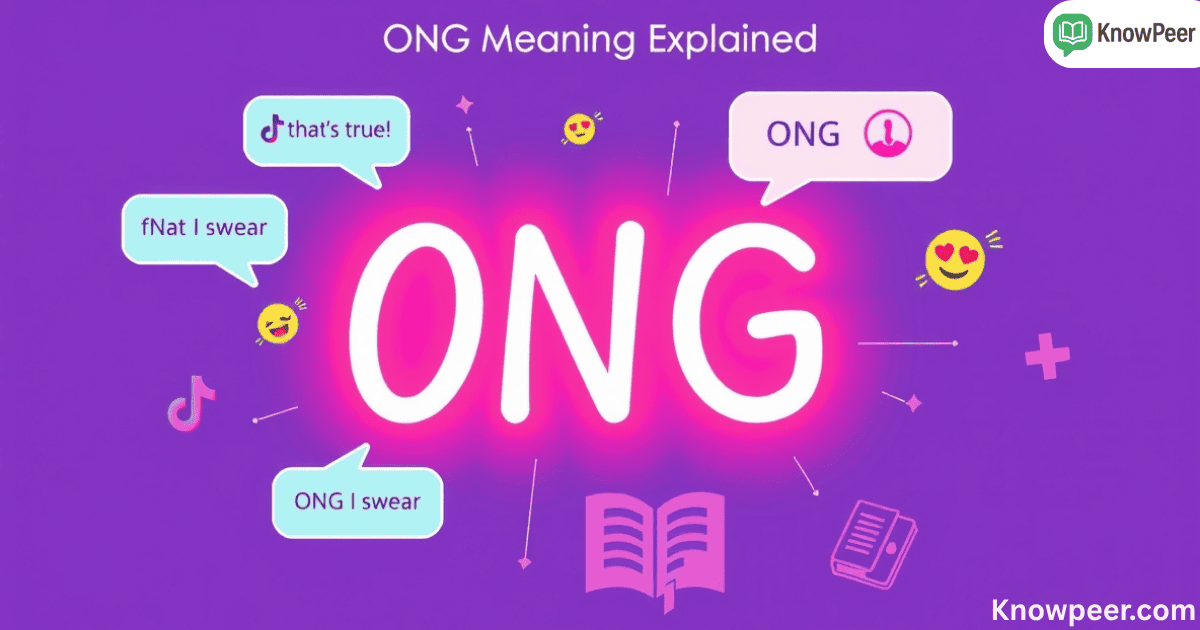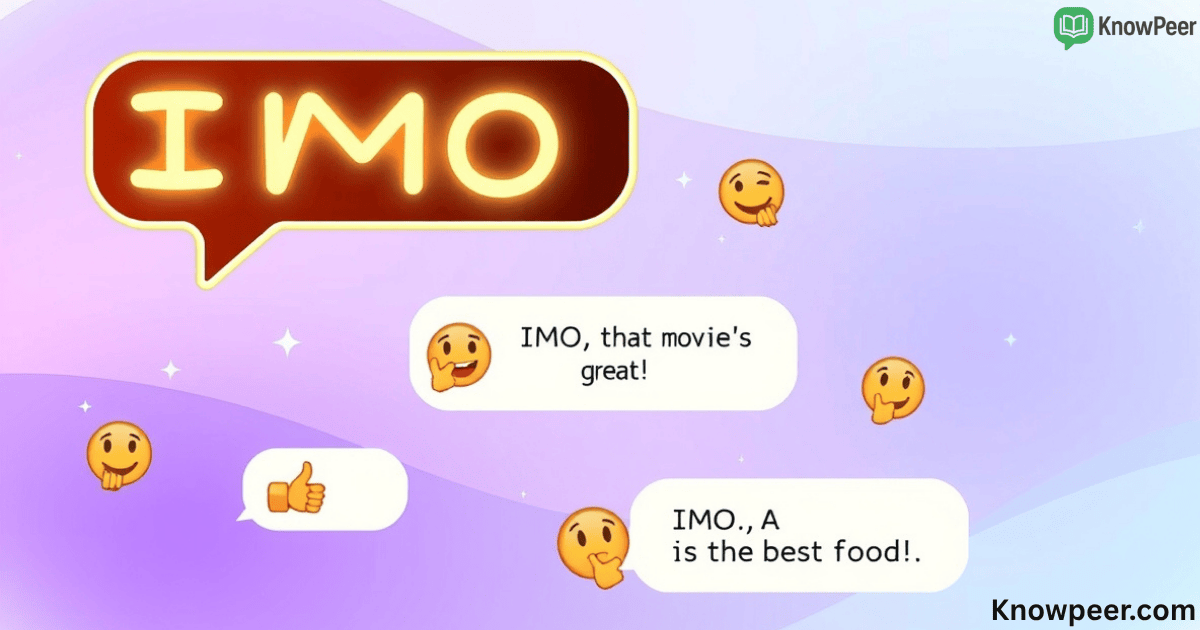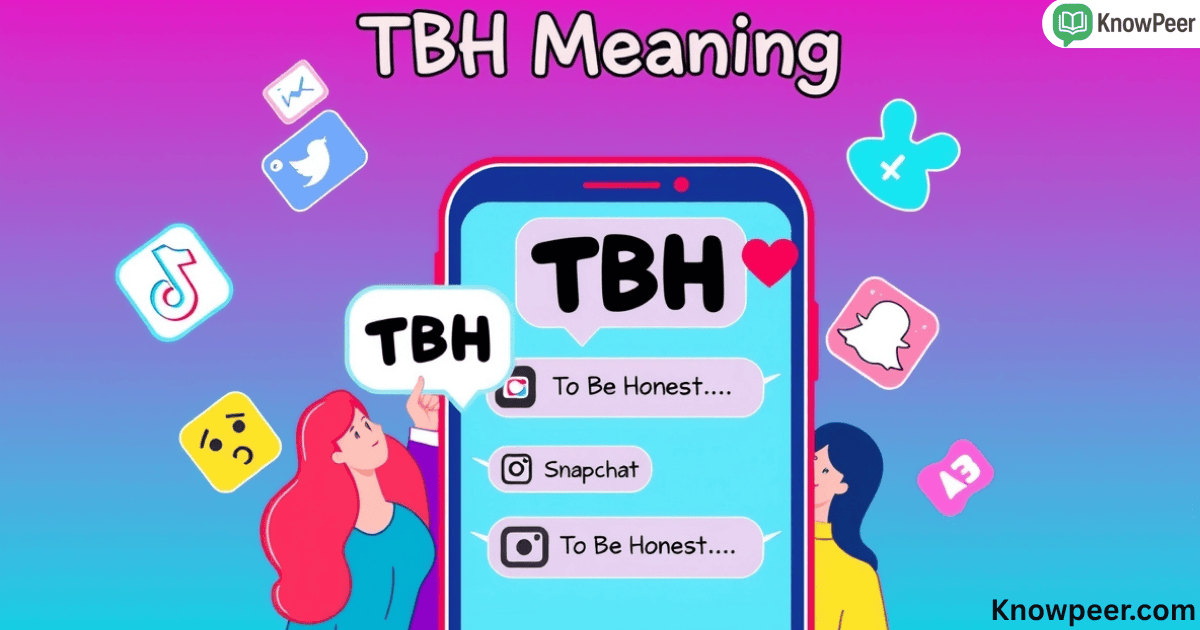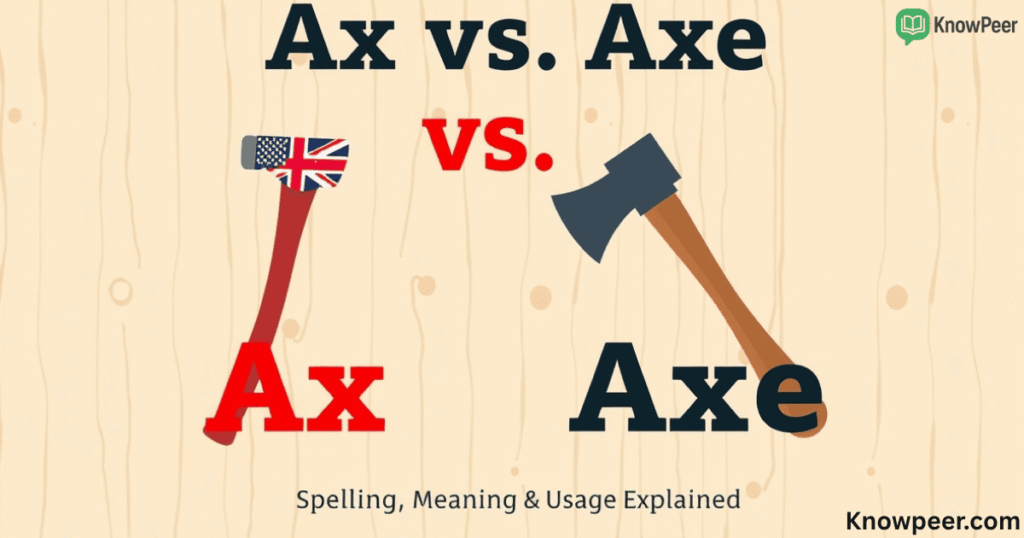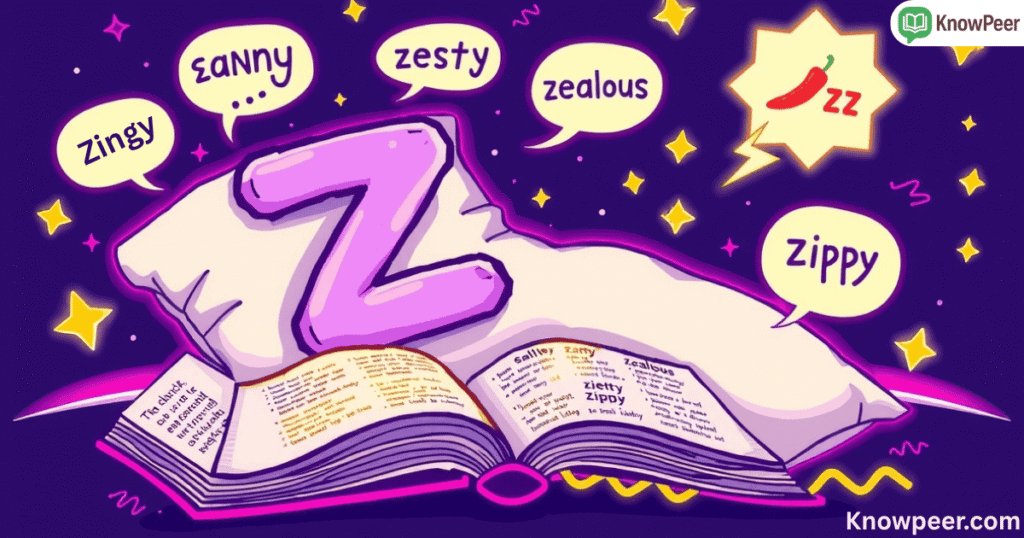What Does YFM Mean in Texting?
In texting, YFM Meaning in Texting stands for “You Feel Me?” It’s a casual slang phrase used to ask if someone understands or emotionally connects with what the speaker is saying. Rather than directly asking, “Do you understand?” or “Do you agree?”, YFM adds a personal and emotional tone—making it more about shared experience than just clarity.
The phrase originally comes from African American Vernacular English (AAVE), where it’s often used in everyday speech to build connection, show empathy, or emphasize a point. Over time, “You feel me?” transitioned from spoken conversation into digital spaces—appearing in texts, social media captions, comments, and DMs. In its short form, YFM became a part of internet slang used especially by younger generations like Gen Z.
YFM is more than just a question—it’s a subtle request for emotional validation. For example, when someone says, “People don’t really listen anymore, YFM?” they’re not just checking if you get what they’re saying. They’re asking if you relate to the feeling behind it. That makes YFM different from many other texting abbreviations, which tend to be more functional or impersonal.
Whether it’s used in a serious conversation or a funny story, YFM brings depth to a message. It works well in situations where someone wants to be understood—not just heard. From platforms like TikTok to group chats with friends, YFM helps express thoughts and emotions in a compact, relatable way. It’s a powerful digital tool for emotional connection.
How YFM Is Used in Real Conversations
YFM isn’t just a trendy phrase—it’s a meaningful way to connect in digital conversations. When people use YFM (short for “You Feel Me?”), they’re often trying to check for emotional understanding, not just surface-level agreement. This slang phrase appears in casual texts, social media comments, and even serious discussions, depending on the tone and context.
For example, someone might say, “Life’s been hitting hard lately, YFM?” In this case, YFM isn’t just asking, “Do you get it?”—it’s asking, “Do you relate to what I’m feeling?” That added emotional depth is what makes it so popular in texting and online communication.
In lighter moments, YFM can be used in a playful or joking way. Picture someone texting after a night out: “That club was wild last night, YFM!” Here, the phrase is used to bond over a shared experience. It’s part of the fun and lets the other person know you’re on the same page.
YFM is also powerful during vulnerable conversations. For instance, someone might write, “It feels like no one really listens anymore, YFM?”—an invitation for empathy and understanding. That emotional layer makes YFM stand out from more neutral slang like “LOL” or “BRB.”
In short, YFM adapts to tone. Whether it’s serious, funny, frustrated, or hopeful, the phrase adds emotional nuance to a message. It’s not just about being understood—it’s about being felt YFM Meaning in Texting. That’s why it shows up so often in DMs, group chats, and comment sections. It helps bridge the emotional gap in digital communication and makes conversations more real.
Real Examples of YFM in Action
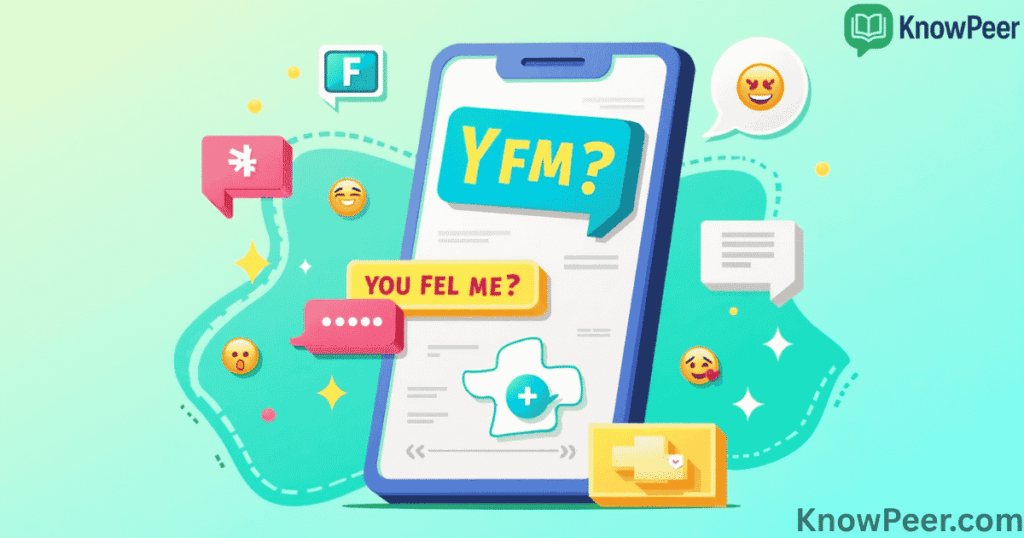
To see how people actually use YFM slang, let’s look at some real-life examples. These will show how it fits into different conversations and what it really means in context.
Example 1:
“I’ve been working two jobs just to keep up with rent. This economy is wild, YFM?”
This use shows YFM as a way to express shared struggle. It’s emotional and seeks connection.
Example 2:
“We hit that party hard last night, YFM!”
Here, YFM is playful. It’s a fun way to say “You know what I mean,” used after a shared experience.
Example 3:
“He never even listened when I tried to explain. I just needed someone to care, YFM?”
This example shows YFM being used in a vulnerable, serious way. It’s asking for emotional validation.
Case Study: Use of YFM on Social Media
A TikTok user posts a video about dealing with anxiety. In the comments, someone writes: “Mental health isn’t taken seriously enough, YFM?” This comment gets lots of likes, showing how people use YFM to express digital empathy and find support online. It’s not just slang—it’s part of expression in online conversation.
Table: YFM Compared to Similar Slang Terms
| Slang Term | Meaning | Emotional Level | Where It’s Used |
| YFM | You feel me? | High | Texting, TikTok, Instagram |
| IYKYK | If you know, you know | Medium | Twitter, TikTok |
| LYK | Let you know | Low | Emails, Messaging apps |
| BRB | Be right back | Low | Text, Online chat |
| FR | For real | Medium | All social media platforms |
This table helps show that YFM texting meaning stands out because of its strong emotional tone. It’s not just about information—it’s about connection.
Cultural Origins and Language Influence
The phrase “You feel me?”, shortened to YFM in texting, has its roots in African American Vernacular English (AAVE)—a rich and expressive variety of English shaped by the Black American experience. In spoken conversation, it has long been used to ask for understanding, agreement, or emotional resonance. More than just a question, it conveys a deeper connection: “Do you get where I’m coming from—not just my words, but my feelings too?”
This phrase wasn’t born from internet trends. It came from real conversations—on street corners, in music, and in moments of shared truth. Artists in hip-hop and R&B, for example, have used “You feel me?” for decades to express authenticity and connection with their audience YFM Meaning in Texting. Over time, as social media and texting grew more central to communication, this spoken phrase made a natural leap into digital language.
YFM represents a larger pattern where AAVE influences popular slang. Many phrases we see today on TikTok, Twitter, and Instagram—from “lit” to “woke” to “cap”—originated in Black communities before becoming widespread. These terms often carry emotional weight and cultural nuance, even when shortened or simplified for quick messages.
Using slang like YFM reflects how language adapts in digital spaces while still holding onto its cultural meaning. It’s a reminder that what we type is often rooted in something much deeper. While the abbreviation makes it easier to share online, the emotion behind it still matters. Recognizing the cultural origins of YFM encourages respect for the communities that created it—and a better understanding of how digital slang continues to evolve.
How to Use YFM in Texts and Messages
You can use YFM at the end of a statement to turn it into a gentle question. It works best when you’re trying to make a point and want someone to agree or understand. If you’re opening up about something personal, or even just telling a funny story, YFM adds feeling. It says, “This matters to me. Do you get it?”
Here are a few common ways people use YFM:
“I’m not going back to that job. They never appreciated my work, YFM?”
“That movie hit way harder than I thought, YFM.”
“People just judge without knowing the whole story, YFM?”
The tone of these messages can change depending on how they’re said. In writing, we often add emojis, exclamation marks, or italics to show that tone. That’s why many use texting tone indicators like YFM? to help with clarity. It’s a small phrase that adds emotional depth.
When to Avoid Using YFM
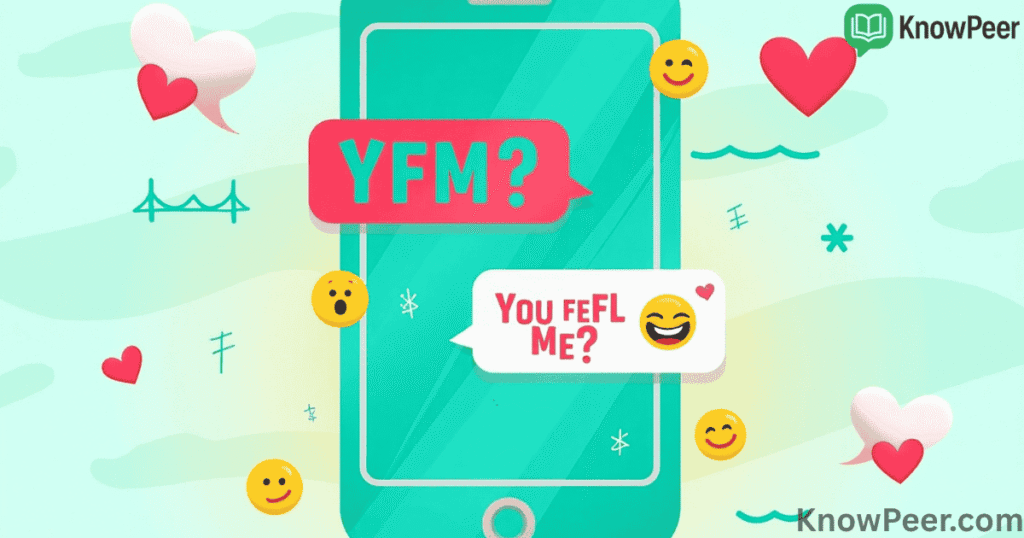
While YFM (“You feel me?”) is a powerful slang term for emotional connection, it’s not always the right choice in every conversation. Knowing when not to use it is just as important as understanding what it means.
First, avoid using YFM in professional or formal settings. For example, if you’re writing an email to a teacher, manager, or potential employer, YFM may come off as too casual or unprofessional. In these cases, it’s better to stick with clear, standard phrases like “Do you understand?” or “Does that make sense?”
Also, consider your audience’s familiarity with slang. Not everyone is up to date with texting abbreviations or Gen Z expressions. If you’re texting someone from an older generation or someone unfamiliar with internet slang, they might not know what YFM Meaning in Texting. This can lead to confusion or misinterpretation, which is the opposite of what YFM is meant to do.
Additionally, be careful not to overuse YFM. Using it in every message can make your texts seem repetitive or insincere. Since YFM carries emotional weight, it’s most effective when used at the right moment—when you’re sharing something personal, emotional, or meaningful.
Finally, avoid using YFM in contexts that lack emotional depth. Dropping it into random, emotionless texts can dilute its impact. It’s best saved for moments where you’re trying to build understanding, connection, or empathy.
In short, YFM is a great way to add emotion and meaning to a message—but only when it fits the situation. Be mindful of your tone, your audience, and the context before using it.
Why YFM Matters in Digital Communication
In today’s fast-paced digital world, where conversations happen through texts, DMs, and comments, it’s easy for messages to feel flat or emotionless. That’s where slang like YFM, short for “You Feel Me?”, becomes especially valuable. It adds emotional depth to short, typed messages—something that emojis or punctuation can’t always fully capture.
YFM matters because it bridges the gap between emotion and clarity. Unlike a simple “Do you understand?”, YFM asks for emotional recognition. It’s a way of saying, “Do you get what I mean—and feel it too?” This makes it a key part of what researchers call digital empathy—the ability to express and understand emotion in online communication.
When people use YFM, they’re often trying to share something personal, whether it’s frustration, excitement, or vulnerability. In these moments, YFM Meaning in Texting can turn a basic message into a genuine connection. For example, saying “It’s been a rough week, YFM?” invites the other person to feel and respond with empathy, rather than just offering a surface-level reply.
Platforms like TikTok, Instagram, and Snapchat are full of emotionally charged conversations. Slang like YFM helps users express themselves more authentically within the limits of character counts and casual tones. It supports a form of communication that values being heard and understood—not just being seen.
As our digital lives become more central to how we build relationships, phrases like YFM play a crucial role. They remind us that even in short texts, it’s possible to be human, emotional, and connected. YFM helps people go beyond words—it helps them feel seen.
Conclusion
So, what does YFM mean? It means more than “Do you understand?” It’s about emotion, connection, and clarity. It’s one of those common texting abbreviations that says a lot in just three letters. It started in spoken English, became part of AAVE slang in texting, and now lives in internet slang terms we use every day.
Whether you see YFM TikTok comments or get a text saying it, now you know the full story. It’s a shorthand way to say, “I want you to feel what I feel.” And in the fast-moving world of text messaging slang, that kind of honesty still matters.


